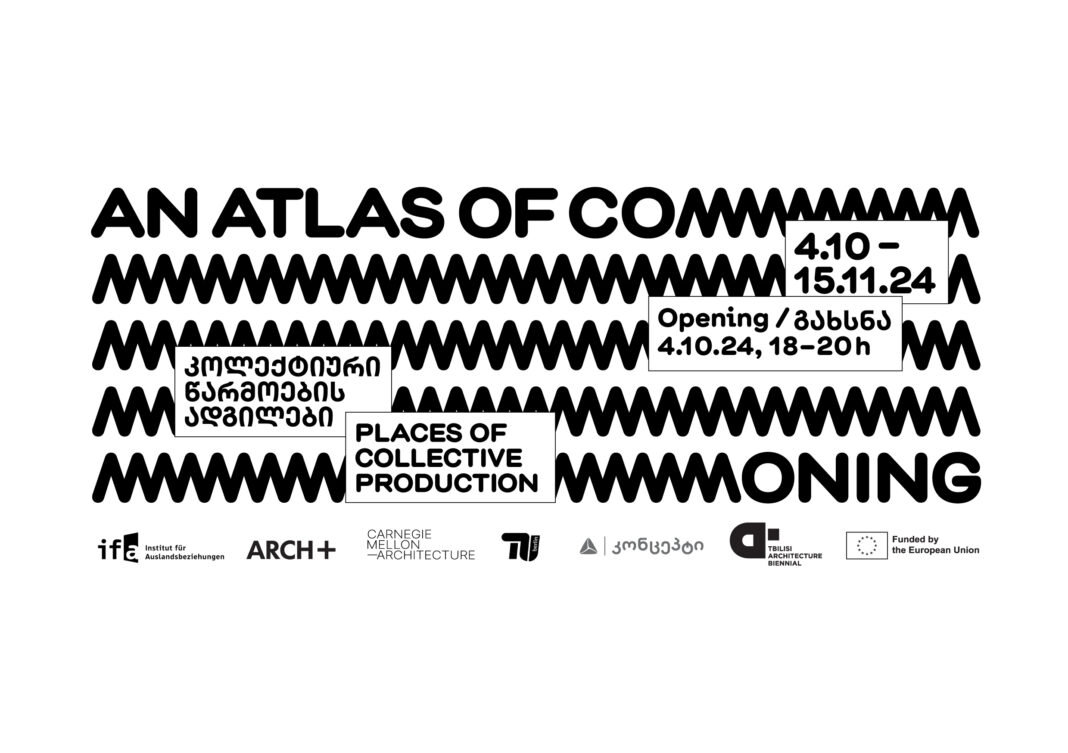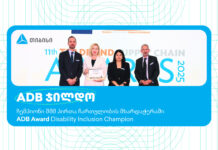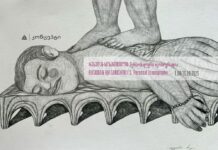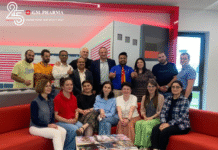
An exhibition by ifa-Institut für Auslandsbeziehungen in collaboration with ARCH+
Presented in cooperation with the Tbilisi Architecture Biennial (TAB) at TBC Concept Flagship
7 Kote Marjanishvili St, Tbilisi 0102, Georgia
Opening: Friday, October 4, 18:00-20:00
Symposium Commoning Tbilisi and Curator’s Tour: Sat. October 5, 14:00-19:00
Exhibition Duration: October 4 – November 15, 2024
Opening Hours: Monday–Saturday, 10:00-20:00
Curatorial Team:
Anh-Linh Ngo, Mirko Gatti, Christian Hiller, Max Kaldenhoff, Christine Rüb (ARCH+); Elke aus dem Moore (ifa); Stefan Gruber (CMU)
Research Partners:
School of Architecture, Carnegie Mellon University (CMU) Pittsburgh, Remaking Cities Institute,
Prof. Stefan Gruber, and Technische Universität Berlin, Institute of Architecture, Prof. Rainer Hehl
Curators of Tbilisi Edition:
Stefan Gruber (CMU), Tinatin Gurgenidze (TAB), Mariam Shergelashvili
Social media and other platforms whose business models are based on the commercialization of social relationships, have transformed words like “community,” “sharing” or “we” into empty concepts that no longer represent solidarity or a progressive social agenda, but rather form the basis for an emerging platform capitalism. This economic development is accompanied by a global political shift fueled by traditional community notions of identity and affiliation, exclusion and discrimination. Against this background, the exhibition and publication project An Atlas of Commoning aims to reclaim and redefine the open and emancipatory space of “we” as a concept. The project focuses on urban commons—here commons are to be understood as a set of practices dealing with the collective production and governance of (material and immaterial) resources and spaces in general, rather than with the resources themselves, hence “commoning,” the verb, takes center stage. Commoning is a process of dealing with differences and conflicts between the individual, the community and society. A process of spatial organization in the relations between production and reproduction, ownership and access to resources. A process that brings together solidarity networks and redefines individual and collective rights. The project questions the prevailing social and political structures and seeks new forms of collective, yet pluralistic, governance.
With contributions from:
Morehshin Allahyari & Daniel Rourke; clemens krug architekten & Bernhard Hummel Architekt (Team: Oliver Clemens, Anna Heilgemeir, Bernhard Hummel, Emma Williams); Assemble & Granby Workshop; Iwan Baan; Brandlhuber + Christopher Roth; DAAR Decolonizing Architecture Art Residency; Theo Deutinger; Eureka; Manuel Herz; Sandi Hilal, Philipp Misselwitz & Anne Misselwitz; Immo Klink; Kotti & Co; Kuehn Malvezzi; Angelika Levi; Golan Levin (F.A.T. Lab) & Shawn Sims
(Sy–Lab); Makoko Waterfront Community; Tukano Maloca; Miethäuser Syndikat; National Union of Sahrawi Women; NLÉ Architects; PlanBude Hamburg, Svenja Baumgardt & Sylvi Kretzschmar; Common Ground e.V. & Nachbarschaftsakademie; Quest – Florian Köhl / Christian Burkhard; Martha Rosler; Harald Trapp / Robert Thum; Urban-Think Tank, Chair of Architecture and Urban Design ETH Zürich; WiLMa GmbH; Samson Young.
The “Atlas of Commoning” also includes works by:
Airbnb; ARGE ifau | HEIDE & VON BECKERATH; Atelier d’Architecture Autogérée; BARarchitekten; Bau- und Wohngenossenschaft Spreefeld Berlin eG; Carpaneto Schöning Architekten; City in the Making; FATkoehl Architekten; Die Zusammenarbeiter; El Campo de la Cebada; Genossenschaft Kalkbreite; Genossenschaft Kraftwerk1; Go Hasegawa and Associates; IBeB GbR; Müller Sigrist Architects; Refugee Accommodation and Solidarity Space City Plaza; Schneider Studer Primas; Stiftung House of One – Bet- und Lehrhaus Petriplatz Berlin; Gemeinde Yoshino; ZUS [Zones Urbaines Sensibles].
Tbilisi initiatives include the Betlemi Neighborhood Revitalization, Birzha, the Center of Contemporary Art Tbilisi, Napirze in Rustavi, the Kinbe Project, the Save the Rioni River Movement and Street School.
For more information, visit www.biennial.ge








